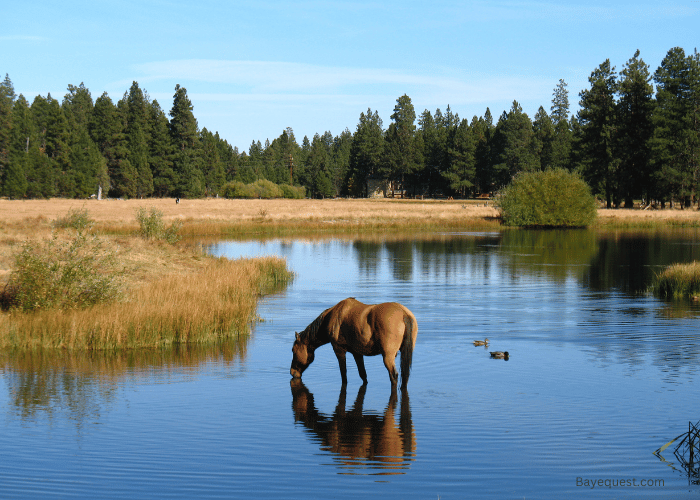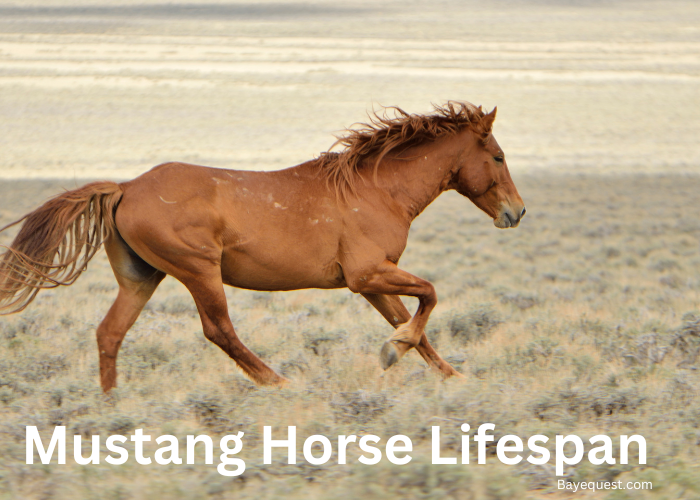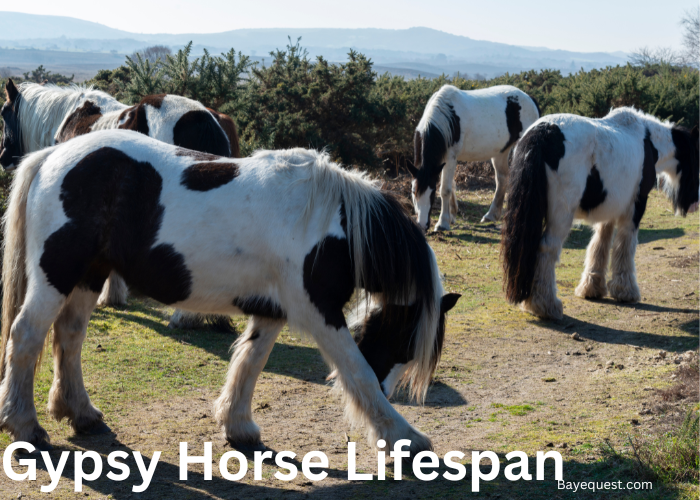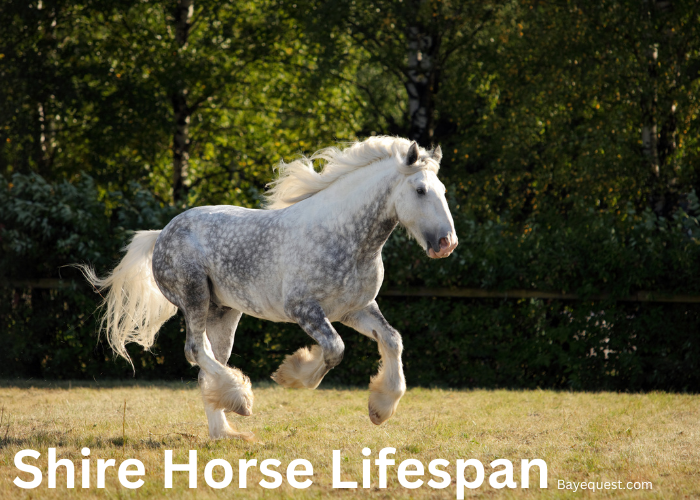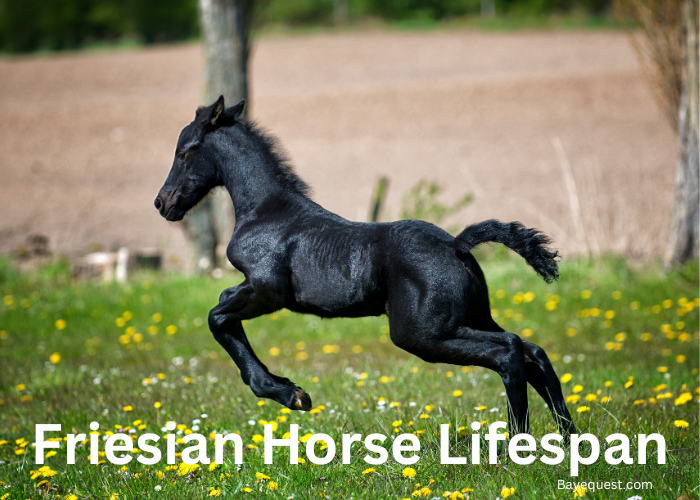Did you know horses can’t go without water for more than a few hours? With decades of equine care experience, we understand the critical nature of horse hydration.
Many owners worry about their horses not drinking enough, especially during travel or extreme weather.
This article offers a deep dive into understanding your horse’s hydration needs. It provides practical advice on ensuring your equine friend stays adequately hydrated.
Whether at home, on the road, or facing the heat, we’ve got you covered.
How Long Can Horses Go Without Water? Key Takeaway
Horses can go without water for about five days, but signs of distress, such as colic, impaction, and lethargy, can appear within 48 hours. Unlike food, which horses can survive without for nearly a month, lack of water becomes life-threatening, emphasizing the critical need for hydration in equine health.
Why Horses Need Enough Water
Water is crucial for horses, supporting digestion, body temperature regulation, waste removal, heart health, joint mobility, and skin hydration. Inadequate water intake can lead to health issues like colic.
Always provide clean, fresh water to maintain hydration and health. Horses’ water needs vary with exercise, pregnancy, nursing, and climate conditions; more is needed for active, pregnant, or nursing horses, especially in hot or humid environments.
Proper hydration is essential for optimal performance, affecting energy and endurance.
How Much Water Do Horses Drink a Day?
Horses typically need 5-10 gallons of water daily, varying with weight, diet, activity, and weather. A 1,000-pound horse needs 5-10 gallons.
Horses on dry hay or active require more water. Ensure constant access to clean, fresh water at a pleasant temperature to encourage adequate consumption.
Check out our other blog on How Many Gallons of Water a Horse Drinks a Day to learn more about factors that affect a horse’s water intake and how to ensure they stay properly hydrated.
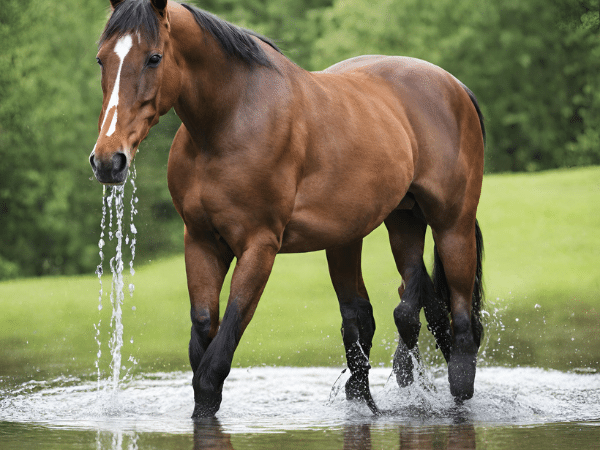
How Often Should Horses Drink Water?
Horses shouldn’t go without water for more than three to four hours.
Not every horse needs the same amount of water. Factors like size, activity level, and weather can affect this.
Bigger or more active horses, or those in hot weather, might need water more often than smaller, less active horses in cooler places.
The key is to ensure horses can get to water whenever needed, even though their needs might vary.
Understanding Horses’ Water Preferences
Sensitive Senses: Horses have a keen sense of taste and smell, making them more aware of slight differences in their water’s taste and quality. This sensitivity is a big reason they might prefer one water source over another.
Past Experiences: If a horse has had a bad experience with a particular water source, like getting sick after drinking from it, they might avoid it in the future. Just like people, horses remember these experiences and act accordingly to avoid discomfort.
Personal Preferences: Just as humans have favorite foods and drinks, horses can have preferences for certain types of water. They might simply like the taste of one source more than another.
Hydration Is Key: Even if a horse is picky about its water, it’s crucial they still drink enough every day to stay hydrated and healthy.
Natural Water Sources for Horses
Horses hydrate from rivers, streams, ponds, lakes, natural springs, rainwater, snow, and ice. Flowing waters are preferred; stagnant sources may contain harmful substances.
Cleanliness is crucial; if in doubt, offer fresh water from a trough or bucket to prevent health risks like mosquito-borne illnesses.
How to Help Your Horse Drink More Water
It’s important for your horse to drink enough water, especially when it’s hot, they are traveling, or after they’ve worked hard.
Keep Water Clean: Make sure your horse’s water is always clean and fresh. Change it often to keep out dirt, algae, and other bad stuff. Adding a bit of apple cider vinegar can make the water more interesting for them.
Add Electrolytes: Putting electrolytes in their food or water helps replace important minerals and can make them want to drink more. If you put electrolytes in their water, also give them plain water, just in case they don’t like the taste.
Offer Water at the Right Times: Horses like to drink more right before and after they exercise. So, make sure you give them water at these times. It’s also good to offer water when they take breaks, especially if they seem hot or out of breath.
Soak Their Hay: Wetting their hay can help get more water into them. This is especially good for horses that find it hard to drink or have teeth problems.
Use a Salt Block: A salt block can make them thirsty, which helps them drink more water to balance out the salt.
Try Different Containers: Horses can be picky about where they drink from. Try different types of containers to see what they like best. Some might like buckets, while others prefer automatic drinkers or big tanks.
Read: How Long Can a Horse Gallop Without Stopping?
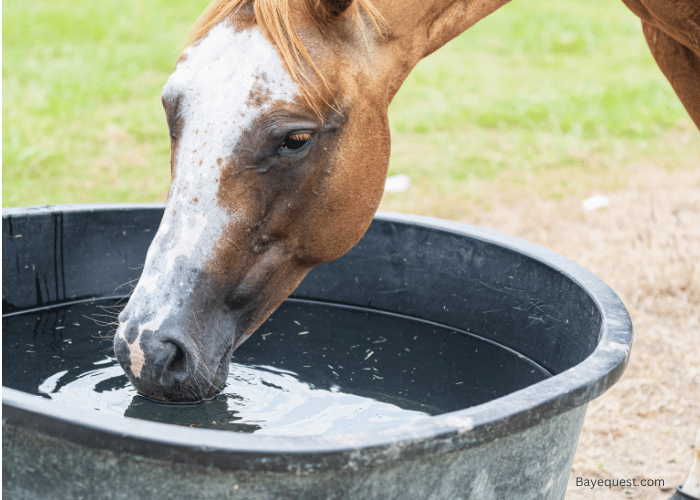
How to Spot and Fix Dehydration in Horses
Look out for:
- Thick, sticky saliva
- Sunken eyes
- Dry and tacky gums
- Less energy or lethargy
- Not wanting to eat much.
- Skin that doesn’t bounce back quickly when pinched
Dealing with Horse Dehydration
Preventing dehydration in horses is essential to avoid various problems. When a horse doesn’t drink enough water, its body reacts by conserving fluids, leading to:
- Colic: Slowed digestion increases the risk of colic.
- Kidney Damage: Dehydration can harm the kidneys.
- Heat Stress: Dehydrated horses are more prone to heat-related issues.
- Performance Decline: Dehydration affects performance and recovery.
- Laminitis: There’s a higher risk of this painful hoof condition.
- Electrolyte Imbalance: Dehydration disrupts electrolyte balance, causing muscle issues.
Ensure your horse always has access to clean water to prevent these problems. If you suspect dehydration, contact your vet promptly.
Is It Possible for Horses to Drink Too Much Water?
Horses can suffer from water intoxication or hyponatremia if they drink too much, leading to dangerously low sodium and electrolyte levels.
Symptoms include lethargy, confusion, seizures, or coma. This condition is rare but more likely in horses with health issues like Cushing’s disease or kidney failure.
Normally, water intake shouldn’t be restricted, but horses with known health conditions predisposing them to overdrink should be closely monitored.
How to Keep Your Horse Hydrated on the Go
Ensure your horse stays hydrated by bringing clean water and offering it frequently, especially post-exercise.
Incorporate electrolytes and soak their feed to increase fluid intake. Monitor water consumption with a marked container and regularly check for dehydration signs.
Prehydrate with electrolytes or wet feed before travel and plan regular hydration breaks during trips or competitions.
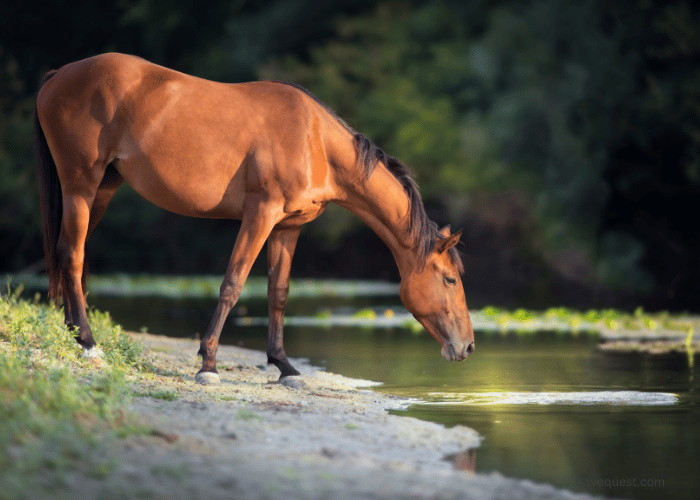
Watering Horses in Winter
Watering horses in winter can be tricky. It’s important to keep water available and not frozen. Here are some tips for the winter months:
Choose the Right Waterer: Consider getting an insulated or heated waterer. This helps keep water from freezing, even when it’s very cold. Electric heaters can also keep water clean and drinkable in winter.
Keep the Water Moving: If you don’t have a heated waterer, use a tank with a heater or something that stirs the water. This stops it from freezing and makes it taste better.
Monitor Intake: Horses might not drink as much cold water in winter. Keep an eye on how much they drink. If they drink less, try to get them to drink more.
Keep Water Clean: Clean water is very important, especially in winter. Make sure the water is free from ice, snow, or dirt.
Adjust Feeding Habits: In winter, you might need to change what you feed your horses. Use hay with more moisture and give them a salt block.
What Temperature Water Do Horses Prefer to Drink?
Horses like drinking water at room temperature, about 50-70°F (10-20°C). Water that’s too cold or too hot can make them drink less. In winter, water sources might be too cold.
So, it’s important to give them water at a comfortable temperature.
Some horse owners might want to give their horses warm water in winter to encourage them to drink more. This can help, but it’s important to ensure the water isn’t too hot.
Health Issues and How They Affect a Horse’s Drinking
Problems with Organs: A horse with kidney or liver problems might start drinking more water to help its body cope. And if a horse has tummy troubles, like colic or diarrhoea, it will need more water to compensate for its loss.
Hormone Issues: Horses with certain conditions that mess with their hormones, like Cushing’s disease or metabolic syndrome, might not drink enough water. They need extra attention to stay hydrated and avoid any serious problems.
Automatic Horse Waterers
Automatic horse waterers are devices that give horses constant access to fresh, clean water. They supply water automatically, so owners don’t have to refill buckets or troughs daily.
These waterers usually come in two types: heated and non-heated. Heated waterers are for colder climates, where temperatures can drop below freezing.
They have a heating element to stop the water from freezing. Non-heated waterers are for milder climates, where it rarely gets that cold.
Automatic horse waterers are made from strong materials like polyethene, stainless steel, or galvanized steel. They’re built to last and need little maintenance.
They can handle regular use. Most models have a sensor that refills the water as the horse drinks, ensuring there’s always enough water available.
Still, keep all troughs, including automatic ones, clean to maintain water quality.
Conclusion
Hydration is crucial for horse health, aiding digestion, circulation, and cooling. Horses require constant access to clean, fresh water, and consumption must be carefully monitored, particularly during heat, exercise, or travel.
Dehydration requires immediate attention to prevent severe issues. Considering temperature fluctuations, ensure a reliable, clean water supply.
Automatic waterers and electrolytes can promote drinking. Be aware of health conditions affecting water intake.
Typically, horses need 5-10 gallons of water daily. Providing quality water at appropriate temperatures ensures adequate hydration and supports lifelong horse health.




